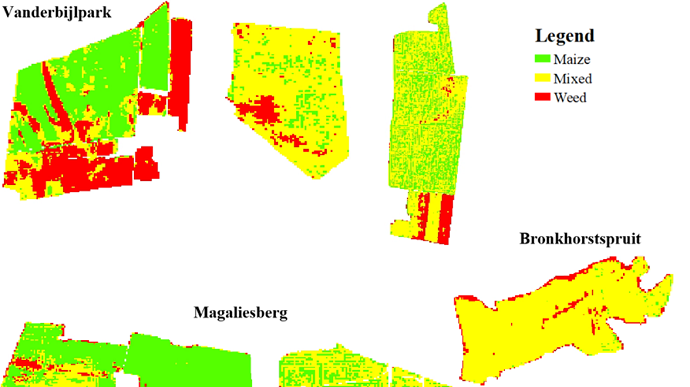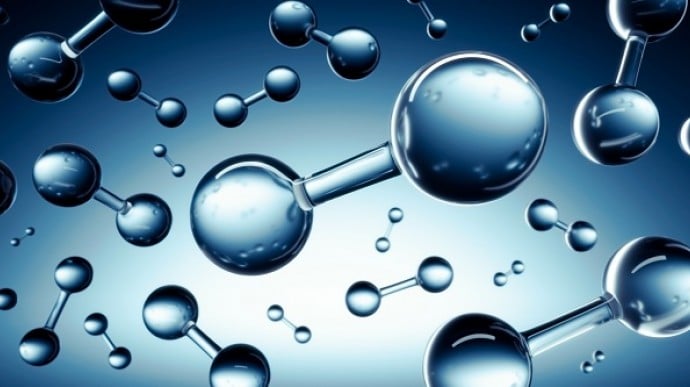 Infographic
Infographic
Farmers not only save time and money by cutting down the cost and effort required to manage weeds, but also limit the environmental impact of using harmful weed-killing chemicals by using satellite data and imagery.
 Photo
Photo
This classification map shows the different types of plants in a crop field in various areas in Gauteng. The legend shows red for weeds, green for maize and yellow for mixed growth areas.
 Lecture
Lecture
Artificial Intelligence has had a major impact in the fourth industrial revolution and has been instrumental in finding scalable solutions to complex problems posed by the United Nations Sustainable Development goals. However, this has not been without challenges. As the adoption of artificial intelligence has grown, we find ourselves in the situation where artificial intelligence has moved out...
 Story
Story
RE.SEARCH 9 is our most novel edition yet. In it, we have featured research that encourages us to think afresh, and is doing so, we’ve highlighted new ways of looking at research. You can expect to read about research that has potential and promise for the future but which is still nascent or represents an educated guess. This edition also features a range of multimedia that you can immerse...
 Story
Story
In a world in which there is an ever-encroaching digital footprint and high-tech solutions, it is vital that we reconnect with an outlook of compassion, care and communication. We do this through connection and connectivity. The theme of our latest issue, ‘Connect’, highlights how UP lives up to its motto, “Make Today Matter”, and demonstrates how our African research connections and...
 Story
Story
Scientists at the University of Pretoria (UP) are leading a study of natural hydrogen gas discovered under the Earth’s surface in Mpumalanga – a source of renewable energy that could contribute to the national energy budget and help address the energy shortage in South Africa.
Copyright © University of Pretoria 2025. All rights reserved.
Get Social With Us
Download the UP Mobile App